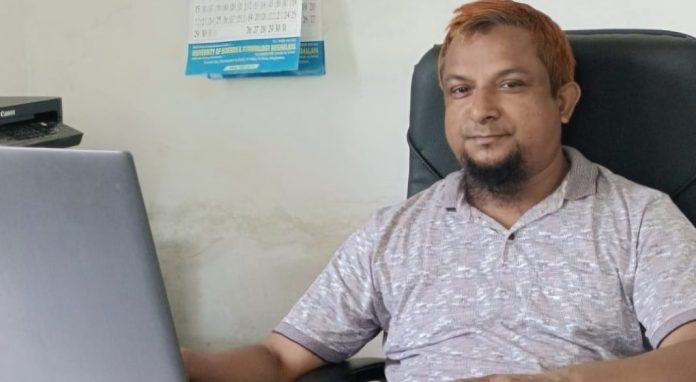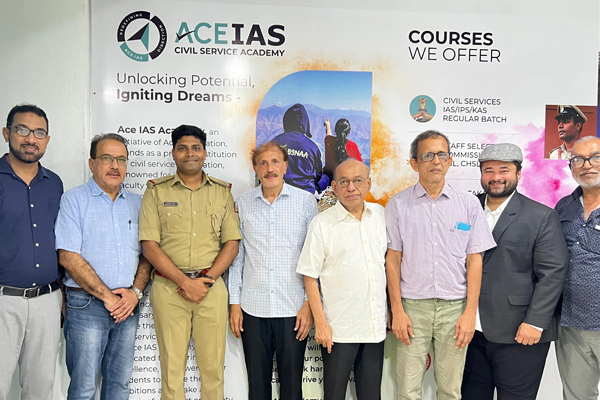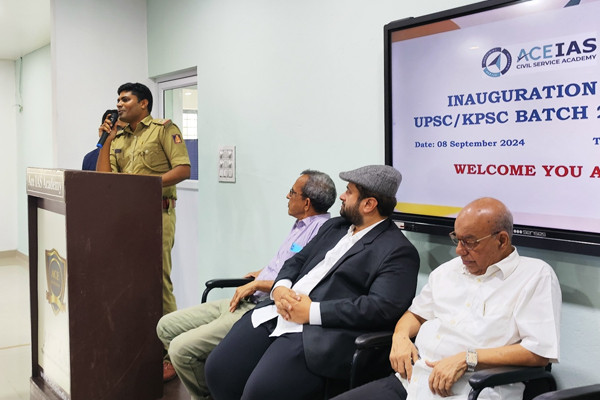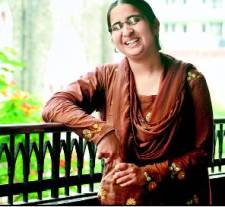Bhopal, MADHYA PRADESH :
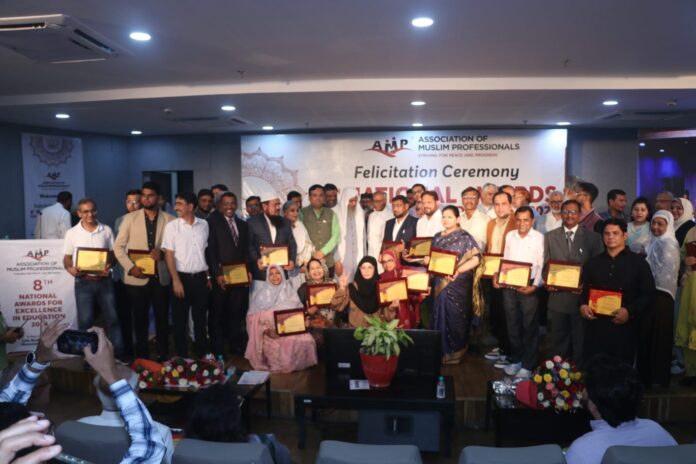
AMP awardees with guests on the stage.
Bhopal :
On Teachers’ Day, over 150 educators from around the world were celebrated with the 8th AMP National Award for Excellence in Education 2024 at a distinguished ceremony held at Ravindra Bhawan in Bhopal.
The event was presided over by Bhopal Shahar Qazi Maulana Syed Mushtaq Ali Nadvi, with former Madhya Pradesh Chief Minister and current Rajya Sabha Member Digvijay Singh serving as the Chief Guest.
The ceremony drew attendees from various educational backgrounds, including award recipients who were present in person, special guests, AMP members and volunteers, and members of the academic community. Many other winners participated virtually, and the event was widely followed on social media.
In his address, Bhopal Shahar Qazi Maulana Syed Mushtaq Ali emphasized the profound role of teachers, citing a saying of Prophet Muhammad (PBUH): “I have been sent only as a teacher to you.” He highlighted the Prophet’s impact through education and quoted Allama Iqbal, who praised the fertile soil of Hindustan for nurturing good deeds. The Qazi reminded attendees of the honor and responsibility of being a teacher, suggesting that a dedicated educator can approach the level of Prophets.
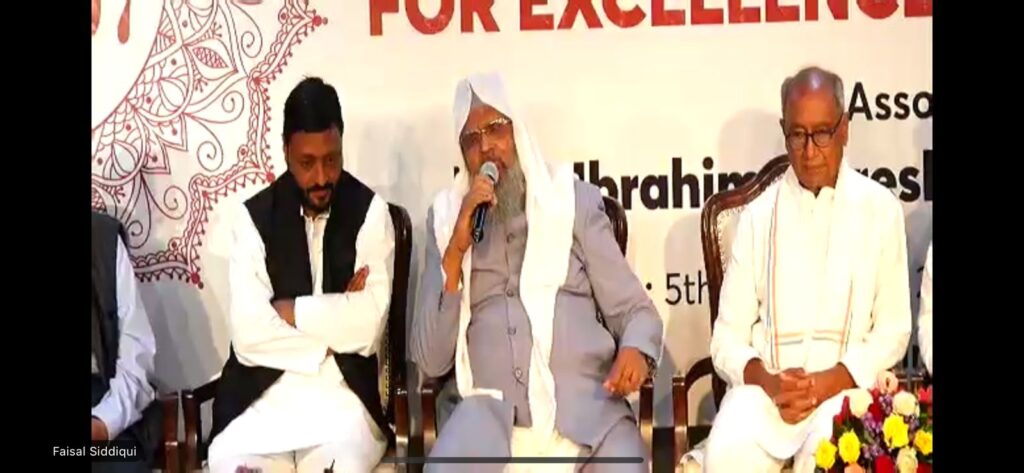
Bhopal Shahar Qazi Syed Mushtaq Ali speaking on the occasion, with senior Congress leader and former chief minister of Madhya Pradesh Digvijay Singh on his right.
Digvijay Singh commended the AMP initiative for uniting Muslim professionals to contribute positively to society. He stressed the importance of prioritizing education and healthcare for national progress. Singh noted the underrepresentation of Muslims in government jobs compared to SC/ST categories and highlighted the need for increased professional education within the Muslim community.
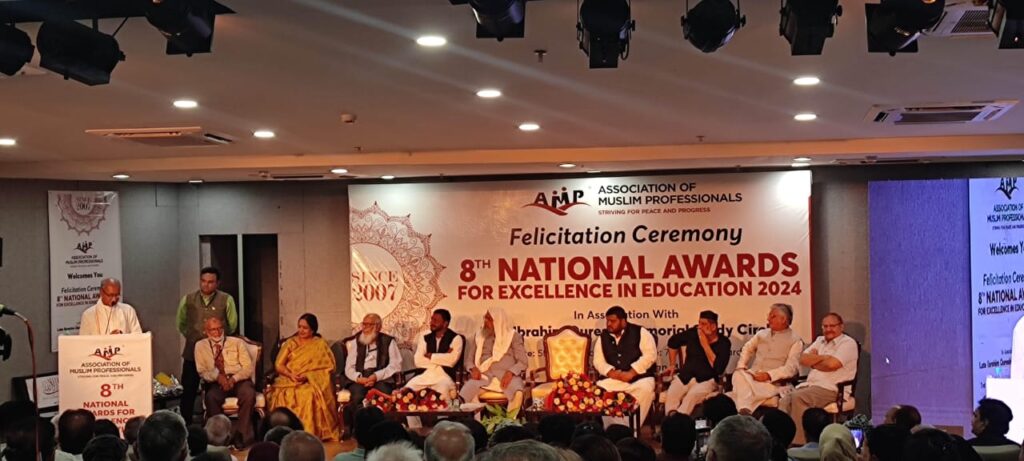
Senior Congress leader and former chief minister of Madhya Pradesh Digvijay Singh speaking on the occasion.
Singh also criticized the state of the education system, pointing to corruption and the prevalence of contract-based teaching positions, which he argued undermine the quality of education. He lamented the shortage of permanent teaching positions and the poor condition of many government schools.
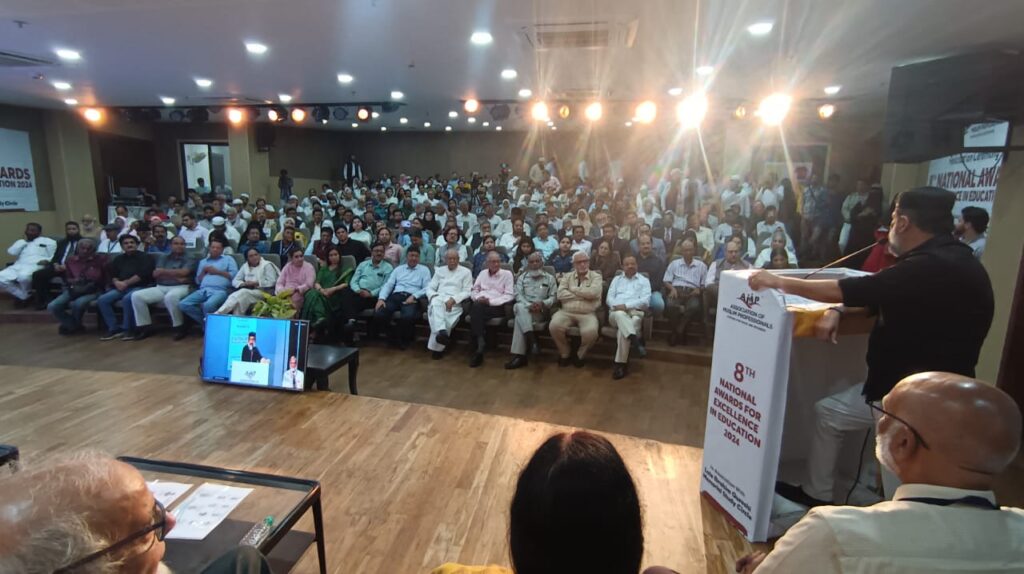
A view of the audience
Prof. Furqan Qamar, former Vice Chancellor of the University of Rajasthan and Central University of Himachal Pradesh, delivered a keynote address advocating for increased participation in higher education and greater public investment to make education more accessible, particularly for rural populations, women, and landless laborers.
Dr. Usha Khare, a National Teacher Awardee and recently retired Principal of Jahangirabad Girls Government School in Bhopal, shared her inspiring journey of advocating for girls’ education in impoverished neighborhoods. She revealed that she donated her prize money from the Kaun Banega Crorepati show to her school and left significant assets upon her retirement.
The awards were presented in seven categories: Primary and Secondary Teachers, College and University Teachers, Principals/Heads of Institutions, Islamic Education (Arabic/Fiqh/Islamic Studies), Educational Institutions, Lifetime Achievement Awards, and the Late Ibrahim Qureshi Memorial Award. Prof. Furqan Qamar was honored with the Ibrahim Qureshi Memorial Award for his exceptional contributions to education.
Lifetime Achievement Awards were given to:
Hazrat Maulana Sayyed Muhammad Aqil, Shaikh-ul-Hadith, Mazahir-ul-Uloom, Saharanpur, UP
Jamaluddin Ahmad Khan, Former Lecturer, Halim Musim Inter College, Kanpur, UP
Sharifa A. Azeez, Correspondent, Crescent Matriculation H.Sec. School, Chennai, TN
Sheila Lawrence, Former Headmistress, Lucknow Christian College, Lucknow, UP
Additionally, 78 educators received Special Jury Awards in various categories, and 50 “My Favourite Teacher” Awards were presented based on votes from students and parents nationwide.
In Bhopal, local awardees included:
*Bushra Parveen, Oakwoods School (Primary & Secondary)
*Dr. Shazia Ali, Campion School (Primary & Secondary)
*Dr. Mohammad Athar, Institute of Excellence (Higher Education)
*Dr. M. M. Malik, MANIT (Higher Education)
*Dr. Sana Khan, Azim Premji University (Higher Education)
*Dr. Siraj Ahmed, MANIT (Higher Education)
*Prof. Dr. Ghayur Alam, National Law University (Higher Education)
*Prof. Asma Rizwan, People’s University (Higher Education)
*Dr. Abid Husain Saify, All Saints’ College of Technology (Higher Education)
*Dr. Faiqa Saulat, Trailblazer International School (Principal/Head)
*Ms. Nikhat Ara, A.U. School (Principal/Head)
The ceremony was also graced by Guests of Honour including MLAs Arif Masood and Atif Arif Aqueel, and Mohammad Wazir Ansari IPS (R), Former DGP – Chhattisgarh. They praised AMP’s significant achievements in education and employment over the past 17 years and commended the thorough selection process and professional execution of the event.
Farooq Siddiqui, Head of the AMP National Coordination Team, hosted the event, reflecting on AMP’s growth from modest beginnings to its present reach across over 200 cities and many countries worldwide.
Kalim Akhtar, Zonal Head – Central India, AMP NGO Connect, presented an English translation of the Holy Qur’an to Digvijay Singh, who accepted it with reverence.
Sajid Qureshi, Acting President of the Ibrahim Qureshi Memorial Study Circle, thanked AMP for their support in organizing the event, and Rafat Iqbal Farooqi, State Head – AMP Madhya Pradesh, offered the vote of thanks to all attendees and the Bhopal Chapter team for their hard work in making the event a success.
source: http://www.indiatomorrow.net / India Tomorrow / Home> Education / by Pervez Bari / September 09th, 2024
